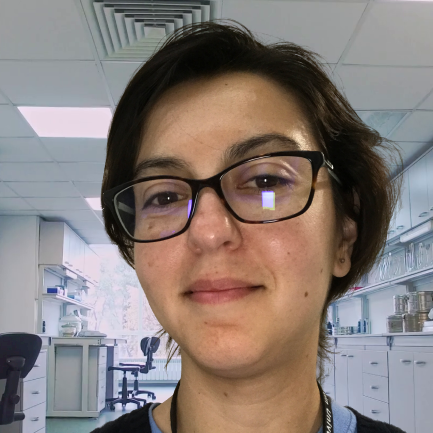.jpg)
Image: Deformed cells in the bone marrow, typical of chronic leukaemia. Photo: Difu Wu
Death from infection – the leading cause of death for patients with a common type of leukaemia – is linked to specific gene mutations, a new study has found.
Testing for these mutations could be used to identify patients at a higher risk of dying from infection and inform disease management strategies.
The study, published in the journal Leukemia and led by scientists at The Institute of Cancer Research, London, found that patients with chronic lymphocytic leukaemia (CLL) who carried one or more mutations in the BRAF, FBXW7, NRAS or XPO1 genes were more likely to die from contracting an infection than those without.
It was the first study to analyse the causes of death in CLL patients in detail – and, in particular, to look at the causes of death from infection, which is the leading cause of deaths associated with CLL, accounting for around half.
Cancer and infectious disease
Screening CLL patients for the presence of any of these four mutations could help identify those at greater risk of dying from infection, as well as inform ways to carefully manage their chances of infection – for example, by choosing appropriate CLL therapies.
Infection causes death in CLL patients, largely due to the dysregulation and deficiency of their immune system by the disease or by treatment. For example, defective T-cells and B-cells can increase the chances of infection, and immunosuppressive therapies can make patients more susceptible to infectious diseases.
This is especially concerning with the emergence of Covid-19 as it presents another possible route to infection, putting CLL patients at risk.
Chronic lymphocytic leukaemia trial
In the new study, researchers at the ICR and the University of Southampton analysed the causes of death of patients enrolled in the LRF CLL4 trial – which established the benefit of the drug fludarabine in combination with cyclophosphamide, compared with conventional chlorambucil therapy.
The trial collected data from 777 CLL patients from 1999 to 2004, with an average follow-up time of 13 years, and its initial findings were published in the Lancet in 2007.
Of the 600 patients who died of a known cause, 43% died of infection, the new study found – either as a primary or secondary cause. Comparing blood samples from patients who died from infection versus other causes, the team then found that although there were no differences between the two groups in terms of demographics and prognostic markers, such as disease stage, there were several distinct genetic changes specifically linked to those who had died from infection.
Increased infection death risk
Of the genes analysed, mutations in the BRAF, FBXW7, NRAS and XPO1 genes were significantly associated with death from infection, with 69 per cent of patients carrying one or more of these mutations dying from infection compared to 39 per cent who lacked any of the mutations.
The study was largely funded by the charity Blood Cancer UK, formerly the Leukaemia Research Fund (LRF).
Monica Else, Honorary Senior Scientific Officer in the Division of Molecular Pathology at the ICR, and one of the lead authors of the study, said:
“Our study found a link between certain gene mutations and deaths from infection in CLL, which could help to inform future treatment strategies for patients with these infections. It also raises the intriguing possibility of a relationship between these genes and the origin of infections in leukaemia.
“If these mutations turn out to be important in the origin of infections, or in the way that CLL develops as a result of its interaction with infections, then it will be very exciting. It is very possible that infections play a role in the way CLL develops and if so, these mutations might be a part of that.”
Daniel Catovsky, Professor Emeritus at the ICR, and formerly Team Leader in Haemato-Oncology, was the Principal Investigator of the CLL4 trial. He said:
“Infections are a common cause of death in chronic lymphocytic leukaemia, a disease which otherwise patients can live with for many years with relatively few ill effects. Although our trial initially focused, successfully, on answering the question of which is the most effective cancer drug treatment for CLL, the results have now shed new light on the management of infection – a crucial question for patients, and all the more so now in the era of Covid-19.”

 .
.
 .
.